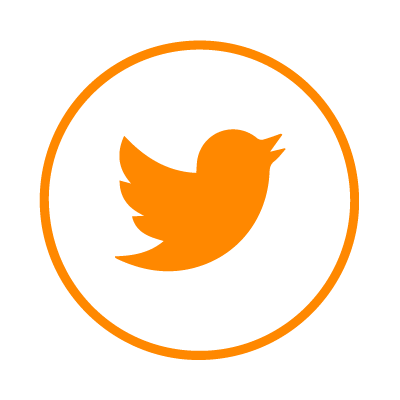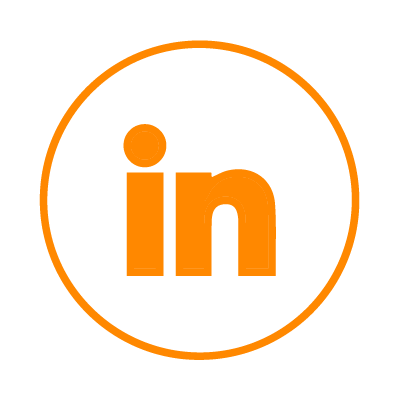Advancing further in an interview process is an exciting opportunity; however, it can be difficult to decipher what information should be prepared for a formal interview. By understanding the nuances of the following questions and preparing for them effectively, job seekers can stand out amongst the competition. Whether you’re kickstarting your career or a seasoned professional seeking a new challenge, this guide offers insight into the interviewers’ perspective and provides strategic tips for crafting responses that highlight strengths, experiences, and fit for the role.
“Tell Me About Yourself.“
When asking this question, the interviewer is seeking elaboration on the candidate’s experience and skill set. This question not only acts as a great ice breaker for the formal interview but also shows the interviewer if the candidate came prepared. To properly answer this question, the candidate should highlight influential experiences applicable to the role, such as acquired hard and soft skills and professional history. This is also the perfect time to showcase your personality. Sharing qualifications and personality allows the interviewer a chance to gauge not only if you would be a great fit for the position, but also the team.
“What Drives Your Interest in Finding a New Role?”
This question clarifies why the candidate is searching for a new role. Whether the candidate quit their previous role or was fired, it is encouraged to speak truthfully about past positions. However, it is critical that the candidate does not badmouth previous employers in the formal interview process. For example, if the departure was a result of a lack of growth opportunities, express this. This shows a willingness to grow within their company.
If a candidate was fired from their previous position, while it is important to be honest, they should be careful not to overshare. Candidates should take responsibility for mistakes made previously and explain steps taken to prevent them in the future.
“What Excites You About Our Company?”
Organization and readiness play a key role in providing a tailored response. Ensure proper research is completed and highlight key points of interest within the company. This could be in relation to company culture, leadership, and growth opportunities. Understand the company’s mission and share how the company’s beliefs align with personal goals. If someone referred you to the company, this could set you apart from other candidates and provide a wonderful networking opportunity.
“What Interests You Most About This Position?”
Convey enthusiasm and suitability for the role. Start by highlighting an understanding of the role within the company and industry, connecting it to past experiences to provide readiness and capability. Reiterate the research completed for the formal interview to show deep interest. Be specific and genuine in response, focusing on the unique aspects of the job and how they resonate with personal and professional goals. This approach not only displays the necessary qualifications but also a commitment to contributing to the company’s success.
“Do You Have Experience in Supervising Team Members?”
This question could seem daunting if a candidate lacks conventional leadership opportunities. However, there are numerous ways to convey leadership potential or nonconventional routes of leadership. Emphasize values learned from these experiences and their relevance to the role. Highlight the ability to coordinate, motivate, and guide team members towards achieving a common goal. Even if the experience was informal, such as leading a group project in school, it still shows critical leadership qualities like taking initiative, responsibility, and the ability to work collaboratively.
“When Have You Faced an Obstacle and How Did You Overcome It?”
Employers often ask about obstacles faced and how you overcame them in a formal interview. This is to gauge critical thinking skills, resilience, and ability for personal growth. This question also offers an excellent opportunity to display your conflict resolution skills and how you have grown from previous challenges. Share an experience that showcases these skills by walking through the issue at hand, how the situation was handled, and anything that prompted a reevaluation of an approach or mindset.
“What Is Your Ideal Position?”
When an interviewer asks about an ideal position, they are seeking the candidate’s career aspirations and how they align with the role and the company’s future. Start by reflecting on leading motivators and how these aspects are present in the role. An “ideal position” does not have to be a specific title. Focus on the qualities of the role, the work environment, the daily responsibilities, and the impact you’ll have. Connect these aspirations back to how they will benefit the company, either by enhancing contribution to the team, driving innovation, or advancing the company’s goals.
“Why Are You the Best Candidate for This Position?”
This is an opportunity to stand apart from other applicants and invites the candidate to highlight the unique value they bring. Start by reiterating your suitability and alignment, supporting how you are the best fit for the role. Consider what aspects of work ethic, personality, or background give a distinctive edge. When providing examples, it is best to show clear results. Pinpointing successes, even if they seem small, highlights a capability to improve processes or enhance team performance.
“Where Do You See Yourself In 5 Years?”
Employers use this in formal interviews to gauge professional aspirations, alignment with the company’s future, and long-term interest in the role. Emphasize interest in growing with the company. This could involve taking on more responsibilities, leading larger projects, or progressing to a leadership role within the same department. Mentioning eagerness to contribute to the company’s success and take on challenges demonstrates dedication and loyalty, qualities that are highly valued by employers.
“What Are Some of Your Greatest Strengths?”
The key to answering this question is to support a balance between confidence and humility. While it is a moment to shine, the underlying goal is to communicate an ability to support and enhance the team’s efforts. Name strengths that directly correlate to the job description and speak to an ability to excel in the specific role. A great strategy is to choose three key strengths that exemplify character and professional capabilities. Consider highlighting strengths based on skill, interpersonal motifs, and problem-solving. Remember, it is not solely about what the candidate can excel in, but how those strengths can serve the company and its goals.
“What Is One Area You Are Aiming to Strengthen?”
When an interviewer asks about an area to strengthen, they are seeking insight into the candidates’ self-awareness and commitment to professional growth. The key is to present an area for improvement without portraying it as a detrimental weakness. Choose something honest but not fundamentally critical to the job’s core responsibilities. Avoid clichéd responses such as “I’m a perfectionist” or “I work too hard.” These answers are overused and can come across as insincere. Instead, opt for something more genuine and specific to a professional journey. This authenticity in a formal interview makes the response more relatable and shows a sincere commitment to growth. Whether it is through professional training, mentorship, or tackling new projects, detailing an action plan toward self–improvement turns this potentially negative question into a positive one.
“Are You Currently Exploring Other Job Opportunities?”
This question can serve multiple purposes: determining the demand in the job market, understanding the career priorities of the candidate, and allowing employers to assess how quickly they need to secure a candidate. It is important to navigate your response with tact and strategic consideration. If exploring other roles, acknowledge it in a way that emphasizes a particular interest in the position at hand, suggesting it aligns closely with the desired career goals. This can make a candidate appear in demand and the employer may expedite the interview process if seen as a strong candidate. Conversely, if you are not actively looking elsewhere, focus on a selective approach to job hunting, highlighting the unique appeal of the company and role.
“Do You Have Any Questions for Me?”
Toward the end of nearly every formal interview, the candidate is given a chance to ask the interviewer a few questions. Seizing this opportunity is crucial; it shows enthusiasm, preparation, and genuine interest in the role and the company. When preparing questions for the hiring manager, aim to cover various aspects of the job and company culture. Questions about day-to-day responsibilities and the career path for the position showcase long-term thinking and a commitment to contributing to the company’s success. It also helps the candidate to clarify any hovering confusion of the job responsibilities, ensuring they fully understand the expectations and the growth opportunities available. Another great avenue is inquiring about the team’s dynamics and upcoming projects. This indicates readiness to tackle what lies ahead and interest in being a proactive member of the team.
Focusing on the company culture, ask about the interviewer’s personal experience with the company or what they enjoy most about the company culture. This personalizes the conversation and can provide insights into the work environment and team spirit. Strategically selecting questions over various aspects of the job and company culture, ensures a lasting positive impression while also providing crucial information about the role and the company.
In Review
These questions are not merely hurdles to overcome but opportunities to present as the best candidate for the position. Each question highlights qualifications that align with the company’s goals and culture which demonstrates enthusiasm for the role. By preparing thoughtful, genuine responses, the candidate communicates readiness for the job and the potential to contribute meaningfully to the company’s future. The goal of any interview is to start a dialogue that leads to a lasting partnership. With these insights and preparation strategies, candidates are well-equipped to turn any formal interview into a compelling conversation about future success and values brought to the table.
Interested in growing your career with Knowledge Services? Take a look at our current openings.





